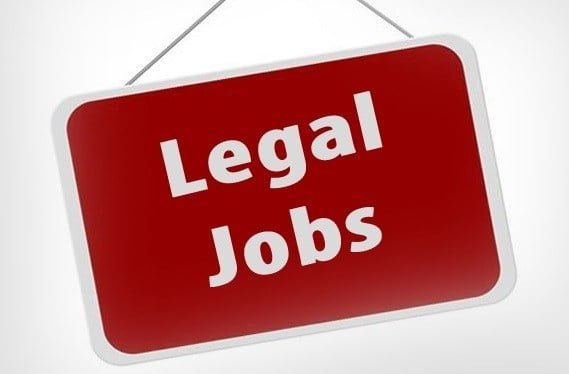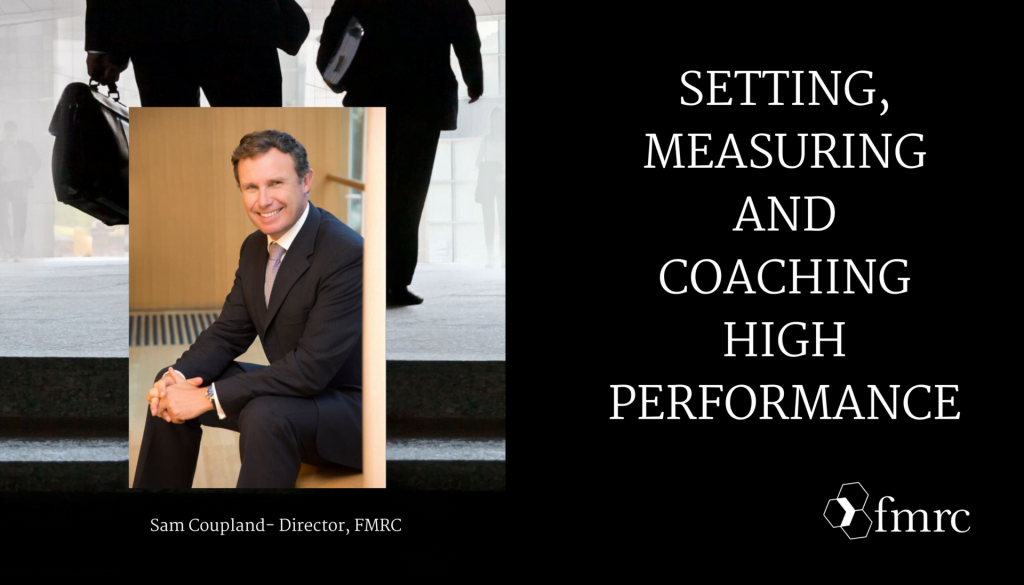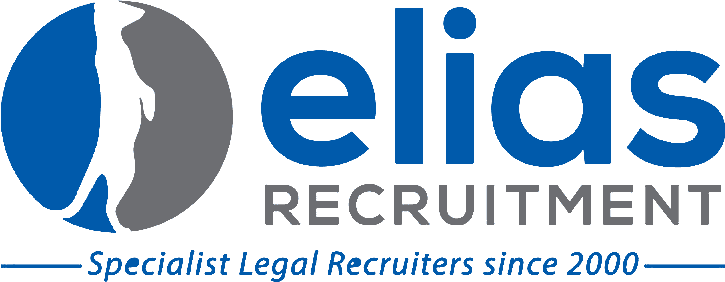Getting your social media profiles ready for your Legal Job Search

You have made the decision to leave your current role and know what you are looking for. Now, it’s time to start getting your social profiles in order. Why do this before your resume? Social profiles provide a point of verification Being easier to find means that opportunities will start to find you Having a strong personal brand will impact the type of opportunities you are offered People within your network may start to think of you for opportunities Start with LinkedIn When we talk about getting your social profiles in order, in Australia, LinkedIn is the major platform that you need to give serious consideration. Virtually every major law firm and recruiter is actively using LinkedIn to identify and approach lawyers with potential job opportunities. Potential employers (and clients) will also use your Lin kedIn profile as a point of verification and proof of your background and experience. Here’s what you need to do to be found: Check your privacy settings: You might choose not to broadcast to everyone that you’re updating your profile. Manage your privacy here. In this section, you can also notify recruiters that you’re open to opportunities. Join the Australian Legal Community LinkedIn group – it’s a great way to expand your network within the legal profession. Get your profile to 100% complete – this makes you 40x more likely to appear in searches. More visibility = more relevant opportunities. Upload a professional headshot – modern, clean, solo photo. Avoid social photos (especially wedding pics with someone’s arm cropped around you!). Update your contact details so you’re easy to find and contact. Use an action-based headline, e.g. “Qualified legal professional helping [INDUSTRY] achieve [RESULTS]”. Create a custom LinkedIn URL, e.g. https://www.linkedin.com/in/eliasrecruit/ – it looks cleaner on your resume and helps you rank higher on Google. Use keywords strategically – if you want to rank for “family law,” repeat that term in your headline, job title, and job descriptions. Consider a LinkedIn Job Seeker account – gives you InMail access and boosts your profile visibility. Request recommendations and endorsements – recommendations carry more weight than endorsements, which can be random or inaccurate. Connect with peers, leaders, groups, and company pages relevant to your legal interests. Post 2–3 blog articles to showcase your expertise and interests. Google yourself to see what others will find. Audit your Facebook privacy settings – make sure nothing unprofessional is public. Review your Instagram posts and consider switching to private, or deleting controversial content. Recruiters (especially in the US) may hire companies to vet your social media before making an offer. Consider using a service like BrandYourself to help manage and clean up your digital footprint. And excuse the plug — but you may want to follow the Elias Recruitment LinkedIn page where we regularly share legal industry news and job opportunities. For further details, check out our 8 ways to build your personal brand with LinkedIn article.
The Legal Talent Pool – The Tinder of Recruitment

The Legal Talent Pool – The Tinder of Recruitment In an industry often criticised for inefficiency, Elias Recruitment has unveiled a revolutionary system that’s changing how clients and candidates connect. The Legal Talent Pool blends advanced AI with a personalised, human approach—and a touch of Tinder-style matchmaking—to streamline the recruitment process, creating unparalleled opportunities for legal job seekers and employers alike. “Unfortunately, recruitment can be inefficient,” explains Elias Recruitment CEO, Jason Elias. “Often, a client will brief an agency, and it may take weeks before they’re presented with a candidate. Now, all the top candidates are viewable on demand, 24/7.” At the heart of this innovation is AI-powered technology that anonymises candidate profiles, allowing job seekers to explore opportunities confidentially while maintaining full control over when and to whom their identities are revealed. With their permission, blinded profiles are marketed to the companies they’re interested in, enabling employers to discover top talent in minutes while ensuring candidates’ current employment remains secure. Candidates can also suggest companies they’d like to work for, with Elias proactively reaching out on their behalf—creating opportunities that might not have otherwise existed. What makes the Legal Talent Pool truly exciting is that it’s public (you can check it out here). This means candidates can be headhunted by multiple employers instead of waiting passively for opportunities to come their way. A Game-Changer for Employers The system isn’t just a win for candidates—it’s a major advantage for employers too. The Legal Talent Pool gives businesses access to a curated database of over 260 pre-screened, ready-to-move candidates. Unlike platforms like LinkedIn, where most profiles are passive, every candidate in Elias’s talent pool is actively seeking a new role. Employers can request a candidate’s CV with a single click and typically receive it within an hour once the candidate authorises the request. This streamlined process not only speeds up hiring but also reduces costs, leading to lower recruitment fees. “It’s like the best dating app you’ve ever come across, but tailored specifically to recruitment,” Jason adds. “Candidates can be headhunted confidentially while employers access top talent much faster than existing methods. It’s a win/win.” Giving Candidates a Second Chance One of the standout features of the Legal Talent Pool is its ability to give candidates a second chance. Those who narrowly miss out on a role—the so-called “silver medalists”—aren’t forgotten. Instead, the platform continues marketing their skills to other employers, particularly those they’re interested in, increasing their chances of landing a great position. This process eliminates the need for multiple interviews with different recruiters, making job searching more efficient and less frustrating. The Legal Talent Pool allows candidates to connect with any employer in the market while protecting their confidentiality. By combining cutting-edge AI with 25 years of industry connections, Elias Recruitment has built a platform that eliminates inefficiencies while empowering both candidates and employers to achieve their goals faster and with greater precision. For more information on Elias’ Legal Talent Pool, click here.
Winning Over Gen Z & Gen Alpha when recruiting Lawyers.

The workforce is shifting rapidly, and companies must rethink how they attract and retain emerging talent. Gen Z is already reshaping workplace expectations, and Gen Alpha will take these changes even further. To remain competitive, it’s essential that businesses understand what drives these generations and adapt accordingly. Understanding the Next-Gen Workforce Gen Z, born between the mid-1990s and early 2010s, values flexibility, career growth, and working with purpose. Research from SEEK shows that over half of Gen Z candidates reject roles lacking flexible schedules. Moreover, 77% prioritise diversity, equity, and inclusion (DEI) when assessing potential employers. For them, flexibility and well-being matter as much as compensation.Gen Alpha, born from 2010 onward, has grown up in a digital-first, hyper-connected world shaped by AI. Their expectations for personalised, tech-driven experiences will redefine workplace norms. What Do These Generations Expect from Employers? Flexibility is EssentialFor Gen Z, hybrid work is no longer a perk—it’s an expectation. Meanwhile, Gen Alpha will push for even more seamless digital collaboration with tools like AI-powered scheduling and asynchronous workflows. Employers offering remote and hybrid options will gain a competitive edge. Growth and Development Matter More Than SalaryWhile compensation is important, continuous learning ranks higher for Gen Z. They seek mentorship, career progression, and opportunities to build new skills. Gen Alpha, raised on instant access to knowledge, will expect personalised, AI-driven learning and project-based roles. Employers who invest in upskilling and career development will be more likely to retain top talent. Purpose-Driven Work is Non-NegotiableGen Z expects employers to go beyond profits and contribute positively to society. Meanwhile, Gen Alpha will demand even greater accountability, looking for companies committed to sustainability and ethical practices. Showcasing real-world impact through social responsibility initiatives can help businesses align with their values. Commitment to Diversity and Inclusion is CriticalAccording to research, 77% of Gen Z candidates assess an employer’s DEI efforts when considering job opportunities. They expect more than statements—they want action. Gen Alpha, shaped by a diverse and connected digital landscape, will push for even more inclusive environments. Companies must move beyond tokenism by ensuring equitable hiring practices, fostering diverse teams, and cultivating inclusive leadership. Digital-First, Tech-Driven RecruitmentGen Z prefers streamlined, digital-first hiring experiences. For Gen Alpha, the expectation will be even higher, with AI-powered recruitment, virtual reality onboarding, and automated workflows as standard. Employers should showcase their company culture on digital platforms like TikTok, Instagram, and LinkedIn while ensuring their hiring process is swift, mobile-friendly, and tech-enabled. Authenticity and Transparency Build TrustGen Z is quick to spot inauthenticity and values real insight into company culture. Gen Alpha will demand even more transparency, such as live employee feedback and interactive behind-the-scenes content. Companies can stand out by using real employee stories to highlight their culture, sharing their values through relatable content, and engaging on platforms where younger audiences are most active. Adapting Your Recruitment Strategy for Emerging Talent Go Digital: Highlight company culture on TikTok, Instagram, and LinkedIn. Show Transparency: Provide clear job descriptions, benefits, and DEI commitments. Focus on Growth: Offer learning pathways and opportunities to upskill. Prioritise Flexibility: Ensure remote and hybrid work options are available. Lead with Purpose: Communicate your impact on sustainability and social issues. Be Authentic: Share real employee experiences and meaningful stories. You CAN Future-Proof Your Workforce Strategy Attracting and retaining Gen Z today while preparing for Gen Alpha tomorrow requires businesses to embrace flexibility, growth opportunities, social responsibility, inclusivity, and technology-driven processes. These shifts are not trends—they are the new standard. Elias Recruitment connects employers with emerging legal talent, helping businesses future-proof their teams for a rapidly evolving workforce. From recruitment strategies to positioning your brand for Gen Alpha, we help you stay ahead. Contact our team today to learn more.
Is it time to progress your career as a Lawyer? Challenge yourself with this checklist.

Is it time to progress your career as a Lawyer? Challenge yourself with this checklist. Before you take the leap and start looking for your next legal job, take a moment to ask yourself the following questions: Am I being challenged in my current role, in my current company? Am I still learning new things? Do I feel respected and appreciated? Am I developing new skills that will enhance my value? Can I see a future career path? Do I get up each Monday excited about going to work or not? Examining the reality of your current role and objectively determining whether it’s the role itself that needs to change or simply the employer can often be the most important first step. Only you know when it’s time to move on. But chances are you’ve at least thought about what the next move might be. There are clear warning signs that it might be time to move on. 1. Staying Doesn’t Make Financial Sense It probably seems risky, but changing jobs can often mean an increase in income or other non-financial benefits. New employers may offer an incentive to move across, and some firms are now offering “70 cents in the dollar on billings” and cross-referral/client introduction fees (often 10% of collected fees). Consider the other benefits you may currently be missing out on: better hours, working closer to home, or flexibility like working from home one day a week. You may find you even have time to take that holiday that never seems to come around. Moreover, staying in a role that doesn’t meet your financial expectations can lead to dissatisfaction and burnout. Regularly assess your market value by networking with recruiters and peers in your field. The recent APLMA Salary survey ( Free for ALPMA member or purchase the full survey here) can provide insights into current salary and employment trends in the Legal Industry and help you benchmark your compensation. Remember, it’s not just about the base salary; look at the total compensation package, including bonuses, benefits, and work-life balance. 2. You’re Risking Guilt by Association No matter how many hours you put in, if you’re not working for the right people, that is energy wasted. Some firms are known for excellence in one area and not others. Ask yourself: how positive is our firm’s reputation in my practice area? Who are we being compared to? Are we being held back or even missing out on work because of the way the firm is perceived? Maybe moving on is a better bet for your reputation. Being associated with a firm that has a tarnished reputation can have long-term career implications. Clients and peers often judge you by the company you keep. If your firm is embroiled in scandals or known for unethical practices, it might be time to distance yourself. Look for firms with a strong ethical foundation and a positive market reputation. A good reputation not only attracts better clients but also opens doors to prestigious career opportunities. 3. Politics Is a Tricky Game Managing demanding clients is one thing. Managing internal conflict is another level of stress altogether. Sometimes firm management just won’t be on your side. Perhaps they are excluding you from managing bigger clients because of some perceived conflict. Did you back the wrong person at the last partner’s meeting? Politicking is part and parcel of law firm life, but if it is taking up too much headspace, it may be time to outgrow the petty game playing. Internal politics can be toxic and detrimental to your mental health and career progression. If you find yourself constantly navigating office politics rather than focusing on your professional growth, it might be a sign to move on. Seek environments where meritocracy prevails and where you are recognized for your contributions and not your alliances. Transparent and supportive leadership can significantly enhance job satisfaction and career development. 4. Your Firm Is Choked by Bureaucracy Too much paperwork and too many meetings might eat into your practice. You would be better off developing business and nurturing client relationships rather than attending endless irrelevant meetings that go nowhere. Overcomplicated workplaces can be very difficult to change. So ask yourself, do you have time to wait around while these knots are being untangled? Or do you have better things to be doing? Bureaucracy can stifle creativity and efficiency. If you spend more time navigating internal processes than serving clients or developing your skills, it might be time to consider a change. Look for firms that value streamlined processes and efficiency. Modern legal practices leverage technology to minimize administrative burdens, allowing lawyers to focus on high-value tasks. Adopting a proactive approach to seeking out such environments can lead to a more fulfilling and productive career. 5. There’s Been a Change in Direction When you started your current role it may have been a perfect match. But things change. If your firm decides to take things in a new direction, your areas of focus may simply not fit anymore. Perhaps they have brought in an outsider above you or merged with a firm with an incompatible culture. Adapting to organizational changes can be challenging, especially if the new direction doesn’t align with your career goals. When a firm shifts its strategic focus, it can create misalignment with your professional objectives. This misalignment can hinder your growth and job satisfaction. It’s essential to stay attuned to industry trends and be prepared to pivot when necessary. Evaluate whether the new direction aligns with your long-term goals and values. If not, it might be time to explore other opportunities that better suit your career aspirations. 6. There’s a Values Mismatch This is tough because values underpin every decision, big and small. Even if your situation looks fantastic on paper, a fundamental mismatch in values or personalities will wear you down over time. Values don’t have to be spelled out in a strategic document. You’ll know what your firm’s priorities are, and
Winning at Resignation

You got the job! Now, go get your resignation. Your Resignation Process CONGRATULATIONS ON ACCEPTING YOUR EXCITING OFFER! Now comes a tricky and potentially emotional step, your resignation. Resigning from a current job is never easy, but there are steps you can take to make the process efficient and less emotional while maintaining good relations with your current employer. A. Plan ahead to resign early in the morning. The day before, try to calendar a specific time early the next morning to meet with your supervisor, so you know this event will happen as planned. B. Always have a printed, signed letter to hand deliver. The time they take to read your short letter when you hand it across their desk breaks the ice for the conversation ahead. A letter also provides documentation for HR. Short and simple! There is no need to elaborate on reasons for leaving. There is also no valid reason to reveal your compensation, or the specific duties, in your new role. [DATE] Dear [NAME OF SUPERVISOR], The purpose of this letter is to inform you of my resignation, effective immediately, with my planned last day of employment to be [SPECIFIC DATE]. I have accepted a position that more closely aligns with my personal and professional goals. My tenure with [CURRENT COMPANY] has been highly rewarding, and I appreciate the opportunity to have worked with you. I wish both you and [CURRENT COMPANY] continued success and I will do my best to help you during my transition period. Best Regards, [SIGNED, you] C. Be prepared for any of the three common ways companies and managers react to resignations: 1. Sometimes there is anger along with an outpouring of personal disappointment. This can possibly include personal verbal attacks and prolonged questioning of your motives for leaving. 2. After the meeting, they may appear to go completely dark, even disappearing for hours or days, leaving you to wonder, while they strategize on how to talk you out of it, or create a counteroffer. 3. Many employers will act professionally, and while expressing mild disappointment, or regret, and surprise, they will also quickly congratulate you and wish you well in your new position. D. Be mentally prepared to deal with a potential counteroffer during the meeting and in its aftermath. To avoid prolonged emotional engagement, be resolute in your resignation. If a counteroffer comes up, use statements like, “Thank you, I appreciate that, but I have already made a commitment to my new employer. I don’t want to use up any more of your time. Thank you for everything. I’m excited.” Anticipate, but do NOT accept a tempting counteroffer to stay. Industry experience reveals that more than 80% of employees who accept a counteroffer leave – or are terminated – within six to twelve months. By resigning, you have made your employer aware that you are ready to go. From this day forward, your commitment will be in question. In most cases, accepting a counteroffer foreshadows your departure as the conditions leading to your initial decision do not change. The firm knows that you are willing to go, and you cost them something to stay. Your joy on the path to new opportunities can get sabotaged by emotions, including guilt, at this crucial juncture. Preparation leads to an optimal exit. With thanks To Thomas Cox of Iowa Career Connection – https://www.iowacareerconnection.com/
What’s happening in the legal jobs market? March 2021

The Elias Legal Jobs Index is compiled regularly and provides an insight into changes in legal job ad volume in NSW and Victoria, by practice area and by role seniority. Changes in job ad volume reflect hiring intentions, and is often used as an indicator of market confidence. In this latest analysis, we have compared data from Q1 FY21 (Jul-Sep 2020) versus Q2 FY21 (Oct-Dec 2020) to assess the effect of the Covid-19 pandemic. Across all practice areas, there was an increase of 22% in the number of roles advertised. The only practice area with a meaningful decrease in ads was Insurance- which may have been affected by anticipated slashing of the iCare workers comp panel in NSW.[1] The largest growth was in Banking & Finance, Corporate / M & A, Regulatory, Property, Construction and Employment Law. Given the increase in business confidence with the relative control of the pandemic,this is no surprise (business confidence rose 9pts to +12 index points in November.)[2] There was a 1,600% increase in Banking and Finance roles. Elias Recruitment Director and recent winner of Talint International’s Business Leader of the Year, Jason Elias, noted this was due to a surge in business confidence, low interest rates and pent up demand from deals put on hold during the uncertain early days of the pandemic. When comparing job ad volume by seniority, there was a decrease of 600% of graduate roles but this needs to take into account the seasonal recruitment of graduates over the spring/summer period. It is however a positive sign that firms are investing in graduate programs and hiring early career lawyers. There was a 40% increase in roles for Division Heads and Senior Associates but a corresponding 40% dip in Partner level roles being advertised. It is clear that the Legal sector was adversely impacted by the coronavirus pandemic in the first few months of the pandemic but towards the back half of 2020, demand snapped back dramatically. Anecdotally, many firms were noting that they had never been busier and many were off Jobkeeper pretty quickly. There are also some who have mentioned increased profitability with the government subsidies, rent reductions and some reduced staffing costs (eg front of house and temp support staff has drastically been reduced). The start of 2021 has continued this trend and we look forward to presenting the stats on the next quarter shortly. Area Q1 FY21 Q2 FY21 % change Banking & Finance 1 17 1,600% Corporate / M&A 10 31 210% Construction 7 12 71% Employment 10 17 70% Family 1 1 0% Financial Services / Funds 9 9 0% In House 126 123 -2% Insurance / Reinsurance 42 39 -7% Litigation / Dispute Resolution 25 28 12% Real Estate 7 13 86% Regulatory 1 2 100% TOTAL 239 292 22% Seniority Q1 FY21 Q2 FY21 % change Department / Div Head 5 7 40% Director / Partner 5 3 -40% Graduate / Entry 0 6 600% Junior Associate / Manager 11 13 18% Mid Associate / Manager 144 164 14% Snr Associate / Manager 103 144 40% Jason Elias is the Founder and CEO of Elias Recruitment, a boutique legal recruitment consultancy that specialises in finding lawyers for law firms, NFPs, and corporate in-house teams. [1] https://www.icare.nsw.gov.au/news-and-stories/icare-selects-new-legal-service-provider-panel-for-workers-compensation#gref [2] https://business.nab.com.au/monthly-business-survey-november-2020-43972/
Uncertain times- don’t worry, we are in your corner

Sometimes you need to talk to someone about your career. It is dangerous to speak to colleagues at work so an objective outsider with industry experience is a good option. Here is where an experienced consultant can help. Elias Recruitment has over 20 years helping legal professionals in private practice and in-house legal roles. Our award winning team, are a safe pair of hands to advise on everything from salaries and your current role or any future move. We can offer expert advice and insight into which opportunities will best suit your career ambitions. We have consultants in Sydney, Melbourne, Brisbane and Perth to assist you. So if you want a friendly, objective voice on your team, book a free career chat with one of our team at [email protected].
Setting, Measuring and Coaching High Performance

Anecdotally, 2019 was a solid year for most practices throughout Australia and New Zealand. It has been a long time since I have heard a partner tell me they don’t have enough work to do, and it is even rarer to hear a partner say that they are not looking to employ a talented solicitor for a particular practice area that is going through a growth phase. Despite these positive signs, what has become common is hearing partners and senior practitioners bemoan the performance levels of the junior lawyers and paralegals in their firm. To an extent these comments appear well founded. FMRC research shows that there is very little difference in the performance levels of principals across different locations (central business district, suburban and country) where their annual effective chargeable hours[1] averaged around 1,150 hours. The performance of employed solicitors was a much different story. The results indicated that the further from the General Post Office that a solicitor practices, the fewer effective chargeable hours they record. In its simplest form, the reason for these differentials is the quality and rigour with which solicitors and other fee earners are being managed. Some firms do this very well, and it is in these firms that performance is high. Those firms that would consider the performance of their solicitors to be below par don’t manage their people well, if at all. It is not uncommon for partners to manage their fee earners through angst, where the partner privately sits and thinks ‘I wish these young people would just do more [insert activity here]’ whilst outwardly focusing on their own performance and hoping everyone else will follow. The idea of talking to their fee earners about performance is a little too confronting. From a solicitor’s perspective, many employed solicitors do not know what is expected of them. Whilst this may seem unlikely, very few firms have taken the time to meet with their fee earners and set out what they see as acceptable (or high) performance. And even fewer firms have gone the next step and held people accountable for these performance levels. Admittedly, most practices have targets for chargeable hours and billings. But what happens in these firms if people don’t meet these targets? More often than not – nothing. SETTING HIGH PERFORMANCE What will make a difference in your practice? To determine high performance for each of your fee earners, consideration must first be given to the activities that will make a significant impact on the way the firm operates. Therefore, the first task is to identify those activities that will: Increase client satisfaction Improve staff morale and productivity Optimise the financial performance of the firm Contribute to building an enduring legal business – not just maximise short-term profits Depending on the firm, it may be appropriate to conduct this identification process on a practice-group level. You may wish to create categories such as Client Activities, Personnel / Staffing Activities and Financial Activities. It is important that you consider activities as opposed to goals. For example, ‘visiting the premises of key clients’ and ‘weekly monitoring of time recording’ are activities, where as ‘improving profitability’ and ‘increasing client satisfaction’ are goals. When this exercise has been conducted with firms or in workshops, the list of activities is quite thorough. Not surprisingly, there is very little difference between the activities of various firms or groups. Common client activities include: Visit key clients every six months Assess client satisfaction Take documents to key clients, rather than have the client come to the firm Attend internal client meetings Write industry specific articles Implement a practice-building program for all lawyers Common personnel / staffing activities include: Improve delegation – delegate to the most appropriate person Increase staff skill levels Conduct internal training Spend more time training / mentoring junior fee earners Common financial activities include: Increase chargeable hours recorded Secure partner approval for WIP write offs > 5% Monitor completion times for fixed fee matters Ensure all time is entered into the system by 10 am the following morning Implement rigorous debtor-management system By utilising the activities that will make a difference in the practice, it is then an easy next step to develop performance excellence for each of your fee earners. Table 1 provides an example of performance excellence for a senior associate who has supervision and practice-development responsibility in addition to their fee-earning requirements. MEASURING HIGH PERFORMANCE From the list of activities you identified as making a difference in your practice and those that appear on the Performance Excellence Criteria, note which activities you want to measure. In terms of measurement, I don’t mean you will have a ‘gut feel’ about it, or that you will ‘sort of work it out’. I mean what regular, quantifiable, documented measures do you have that you could show to an outsider to explain the performance of each activity? If we are defining ‘excellent performance’, there needs to be an objective measure as to the level of performance achieved. It is pointless to set performance goals and not have a system to monitor the performance. Goals without a measurement component are just high ideals. For most practices the only measurements relate to the financial activities of the fee earners. We measure time recorded, level of WIP write offs, monthly billings, etc. Very few firms measure supervision time, delegation, client visitations and client satisfaction levels and so on. If these things are important to performance, they need to be measured. The Performance Excellence Criteria will include both objective and subjective performance levels. Many of the subjective performance measures can be translated into projects. The use of non-chargeable time is integral in measuring the subjective performance criteria. Using the example of the ‘Performance Excellence Criteria’ in Table 1, the senior associate is to record 6.0 hours time against client files and 2.0 hours per day to firm-related activities. Utilising these two hours per day of ‘firm time’ effectively will ensure the senior associate achieves the subjective performance criteria. Whilst management may not
How to position yourself for approaches – Headhunting…

A few touches to your mobile phone and your groceries, an Uber or a pizza come to you. So why not a job? Many of the best jobs are never advertised so how do you hear about them? Good employers know that the best lawyers are so busy running their practices that they don’t have time to trawl through job ads. They also like keeping strategic hires out of the public eye so the marketplace doesn’t catch on to what they’re doing and where they’re headed. That’s why, when it comes to bringing in the big guns, they’ll use third party headhunters to track down, sound out and snare the best talent for themselves. Headhunters don’t use a scattergun approach. Once they’ve been briefed, they usually put feelers out via networks, compile a longlist, then research those candidates to see who’s likely to be a good fit. By the time they approach someone, they pretty much know who they are, what they do and what their reputation is like. So, if you want to be in their sights, there are six things you should be doing. Social networks – make LinkedIn work for you Review your LinkedIn profile, make sure it clearly articulates your skills, experience and area of practice. Highlight projects you’ve worked on and the value you contributed (without of course breaching client confidentiality). Headhunters want to have a good understanding that you’ve worked on similar kinds of matters to those their client has briefed them about. Don’t be shy about blowing your own horn. See Getting your social media profiles ready (Above). Be known as an industry expert You’ll never be headhunted if no one has ever heard of you. So, if you’re not already building a profile for yourself, start now. Put yourself forward to present on your areas of expertise wherever possible, especially for industry events or CPD. As an example, check out Bulletpoints for content. Write about important issues and hot topics affecting your work and share these – not just via your firm’s newsletters but directly with contacts by publishing LinkedIn and other social media channels. To ramp things up, join LinkedIn groups of like-minded people such as Australian Legal Community and start contributing to the conversations. Consider publishing in industry journals – or better still, form relationships with journalists to expand opportunities of being quoted in business or mainstream press as an expert in your field. Releasing subtle signals If you are considering making a move, it’s a good idea to start putting your feelers out there. You can even change your LinkedIn settings to discreetly show that you are open to new opportunities (not viewable to your employer). Also check that your Inmail settings allow you to notify users that you are open to ‘career opportunities’. Make contacting you easy, not a mystery While gatekeeping receptionists can be great at shielding you from telemarketing calls, they can act as a block for headhunters who want to sound you out. So make yourself easy to contact by including your mobile number and personal email address on your LinkedIn profile. If a headhunter struggles to reach you, they may bypass you and run the opportunity by the next person on their list. And, if a headhunter calls and you can’t speak freely, set a time to chat when you’re out of the office. This also gives you a chance to check out their LinkedIn profile to see whether you want to deal with them. Remain professional, don’t breach etiquette Don’t tell anyone in your firm – and that means anyone – about your plans to move, even once you’ve been approached. If the headhunting process isn’t handled discreetly, you’re likely to jeopardise your current position as well as any new opportunities. If a headhunter alerts you to an opportunity never approach the employer directly. Not only will your overtures be met with blank stares, you’ll be seen as disloyal. They’re using a headhunter for a reason and it may be a confidential search. But don’t be afraid If you are approached by a headhunter, you can benefit from their expertise. It never hurts to know the state of the market and have a trusted source of intelligence, especially around salary review time. Besides, even if the specific opportunity they wanted to talk about isn’t right for you at the time, something may hit their desk in the near future. Finally, if you’ve noticed that they’ve looked at your LinkedIn profile, drop them a line to find out why. Headhunting can be a slow dance of missed calls, profile views and unnoticed messages sitting in your personal email account. So, if you’re open to a move, make sure you stay alert and responsive to any headhunter approach. For additional career advice contact Jason Elias on [email protected]
Four Easy Ways To Pimp Your CV

A study by US job board The Ladders found that you have 6 seconds to make an impact or you land in the “Reject” pile. Recruiters (whether agency or internal) tend to zone in on: Name Current title and employer How long you have been at your current workplace and if you are still there Previous positions especially names of firms and longevity Admission date / Post qualification experience Education – especially for graduates. Make sure that your CV lets a recruiter access this information readily to increase your chance of scoring an interview. Avoid fancy fonts, logos, photos, text boxes and unnecessary distractions. Tailor your CV to reflect the specified criteria. Note relevant skills or experience and focus on demonstrating achievements in your recent position that match the role requirements. Here are 4 easy wins to improve your CV: 1. Employment History- List your work history in reverse chronological order and clearly state if you are still working. I suggest something simple as follows: Dec 2014- Current x Law Firm, Melbourne CBD Senior Associate Duties included (say 5-10 bullet points that are relevant to the position you are applying to) Achievements (say 3-5 bullet points that highlight why you deserve an interview) 2. Keep it professional – Even if you look like George Clooney or Scarlett Johansson – a photo on a legal CV is never appropriate. Keep language formal and use the first person. Ask someone to read over it before sending out – it’s amazing how others can find typos that you may have missed. Don’t be afraid to let some of your personality shine eg list your hobbies and interests. 3. Make it relevant – Can your CV be read in 2 minutes or less? Would a total stranger understand what value you brought to each role, your strengths and your achievements? In terms of length, aim for 2 pages for a junior lawyer and up to 4 pages for a more senior lawyer. Provide more detail on more recent roles, if you have 10 years PQE we don’t need much about your pre-legal work at Bunnings. Mention it of course but prioritise the more relevant recent legal positions. If you have achieved in areas eg sport, music, public speaking, academia- make sure you highlight these. 4. Explain any absences or short stints and don’t embellish – Red flags pop up for unexplained gaps or lots of roles in a short period. There may be valid explanations eg contract roles, firm mergers, following a partner on a lateral move, caring for family members. You are better to explain these on your CV rather than allowing employers to arrive at their own conclusions and prematurely rule you out. Whatever you do, do not lie. Not only does it damage your credibility with your prospective employer, it may affect your overall reputation with future employers. Jason Elias is Director of Elias Recruitment. Winner of 2020 Recruitment Leader of the Year Award and former lawyer from Baker McKenzie.

